' ' '
Artist Spotlight: Ryan Smith
It’s a pleasure to introduce Ryan Smith, director of the seven time nominee ‘Eldritch, USA’, which is now on the record as the most nominated project in the history of the Atlantis Awards.
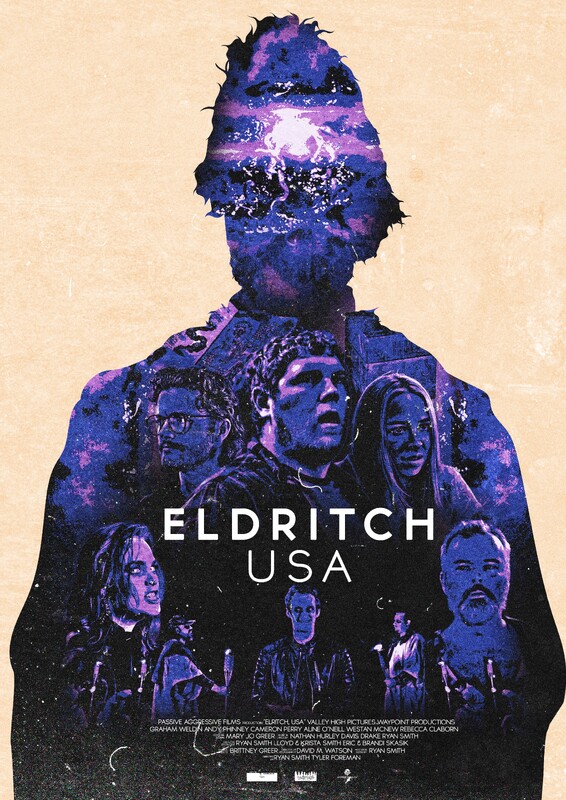
Ryan, welcome and congratulations.
Thanks so much- I’m so humbled and honored by the nominations and the record!
Let’s start with the question that I’m sure a lot of people share after they first see the trailer – Eldritch, USA is a horror, a comedy, and a musical? What led you to such a niche meshing of genres?
Insanity? I knew I wanted to try something bold for my first feature and writers are constantly told to write what they know, so I just leaned into the genres I love. I always enjoyed performing in musicals for theater (to include playing Seymour in Little Shop of Horrors in high school) and I’ve enjoyed horror films from a very young age (thanks, Mom). For the comedy, I tend to be fairly sarcastic, making my own little jokes at regular intervals (much to my coworkers’ chagrin). Shortly before writing Eldritch, I was somewhat enamored with ‘Dr. Horrible’s Sing-Along Blog’ and thought it would be amazing to see a horror film in the same vein.
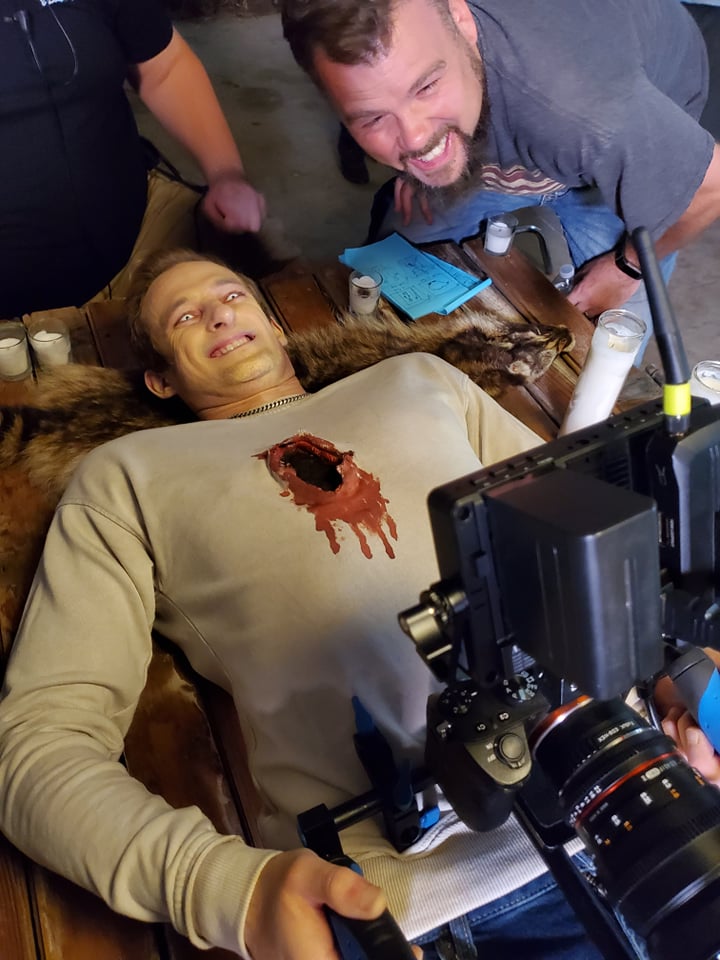
Ok, ok – but before we get too deep here, let’s look back a little. Tell us a about yourself, growing up and your passions.
I probably had too many passions growing up (action figures, Star Wars, etc.), but I distinctly remember singing with my mom in church regularly- she always sang harmony, which really fascinated me and ingrained a strong sense of music appreciation. At a young age, I was convinced that I would be an actor, then a doctor, then a rock star, etc. I ended up marrying my wife at a fairly young age and my passion became making sure that my family was well cared-for, which led to my time in the Army.
Did you have any specific influences growing up that lead you towards the film industry?
I’ve always had a love of cinema, particularly genre films (sci-fi, fantasy, horror, etc.). I would say the main thing that brought me back to cinema after my time in the Army was my desire to be a comic artist. I read all kinds of comics growing up and had taken a pause from them during high school and college. After I joined the Army, my comics were stolen out of my garage, which fired up my desire to rebuild my collection. Reading comics again, I started to dream of working in that world- I tried hard to hone my skills, but I found pretty quickly that I was just not a great artist. One thing that I really enjoyed, however, was sequential art. I loved telling stories from panel to panel, which lent itself well to film making.
I’m told that you were in the Army. First off, thank you for your service – but also; was there any skills or lessons you learned while enlisted that you are able to bring to bear while you are on set?
Did I mention I was in the Army? ? I would say the two things that helped the most from that time was a sense of discipline and a sense of order. I’m not going to wax poetic that I tirelessly worked on any aspect of this film, but I worked on it consistently over time and brought it to fruition. For the order portion, it was good to understand how everything worked together for the whole, and it was wonderful to see the whole cast and crew work together as a cohesive team, much like a military unit.
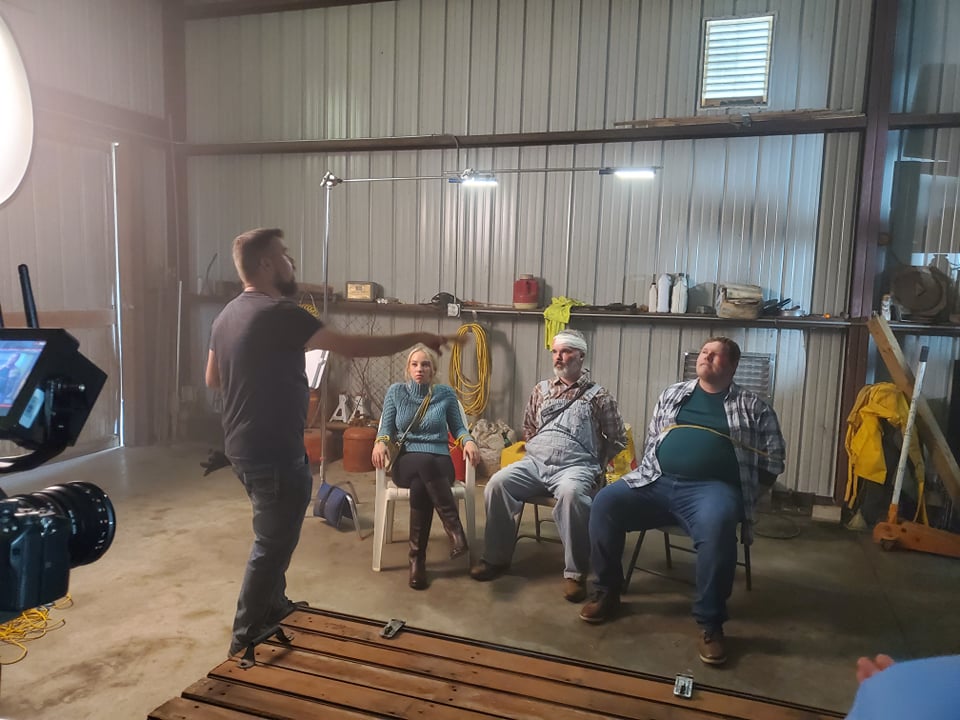
What project helped you launch your career?
My first major project before Eldritch was a short film I produced that was a H.P. Lovecraft adaptation called ‘The Terrible Old Man’. Up until that point, I had been playing with doing some 1-2 minute shorts for my own entertainment, using skills that I had built up by going through the tutorials from www.videocopilot.net. I felt like I had finally gained enough skills to try my hand, so I took a 3-page story, wrote a 7-page script, and created a 20-minute short film (funny math, I know). Aside from the actors, I was pretty much the only crew, so I learned a lot from that experience. The film itself is not that great, but it was my first short and I’m glad I did it.
What were your main responsibilities on Eldritch, USA?
For Eldritch, I wrote the script (I bounced ideas off of my wife and friends when I hit roadblocks), did a majority of the casting and location scouting, directed (Tyler Foreman filled in when I was unavailable and did the line production and 1st AD work), edited, captured ADR, created the VFX, and color graded. I was also an Executive Producer and assembled/ran the crowd funding.
How did you deal with juggling so many roles behind the camera?
It was really just one job at a time. I knew the script really well, so I had a pretty strong idea of what I wanted performance-wise. I also did my best to listen to insight from Tyler and my DP David Watson when they would encourage different things for angles or time-saving shot combinations. When we weren’t filming, Tyler and I would often puzzle late into the night trying to figure out schedules/locations for the cast and crew, all of whom had full time jobs in addition to filming Eldritch. When we completed principle photography, a majority of the burden fell on me to complete the film. We had occasional meetings (Tyler, David, Brittney Greer, and myself) to go over various stages of edits, but we eventually hit picture lock, at which point I worked with a composer for the score, passed off the sound design to Robert Murdaugh, and I started adding VFX.
All that to say, it was a lot to juggle, but I tried to grab the task at hand and leaned into my close crew members when things were hard.
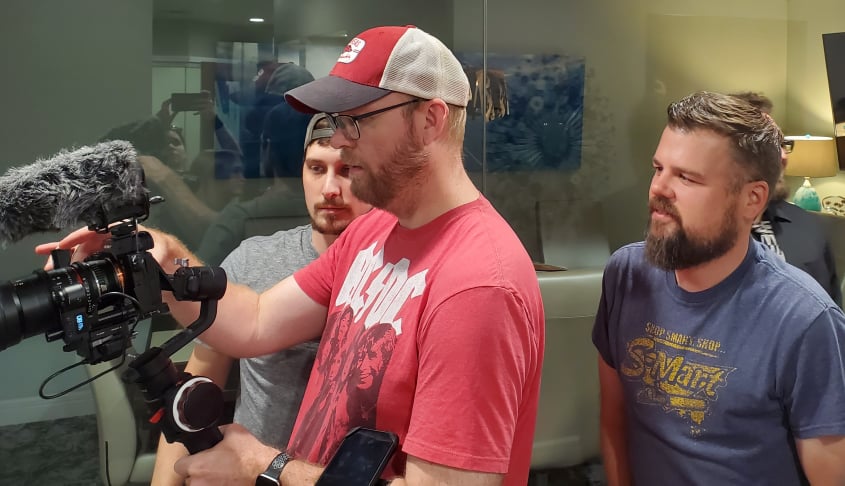
How big of a team was involved in the project? What criteria do you use when building your team? Also; can you tell us about your experience in working with your team in this film?
From a crew perspective, we didn’t have many. David, Tyler, Brittney, and myself worked the scene setup, camera position, and light placement (assisted by a PA or two on occasion). Kong Thao handled the audio capture and Mary Jo Greer did the costuming (she has an amazing eye for detail). On zombie days, we had Brittney and Kinley Cadence doing makeup, and on music days we would bring in Madison Foreman or another choreographer/stunt coordinator. My wife Amanda handled catering (which was delicious). So on average we had about 7 or 8 crew members, but as little as 3 or as many as 12, given the day.
From a cast perspective, we had 6 central actors, 35 additional named actors, and 61 extras (although not simultaneously). Some days we had as little as one person we were capturing, and others we had ~30.
The production itself took 39 days to capture (mostly night and weekends)- the experience was overall very fun. We had a good mix of skill and excitement on our team which led to a fairly enjoyable experience. We had a few team members early on in the preproduction and production phases that had a difference in vision and moved on from the project, but aside from that the journey was very pleasant.
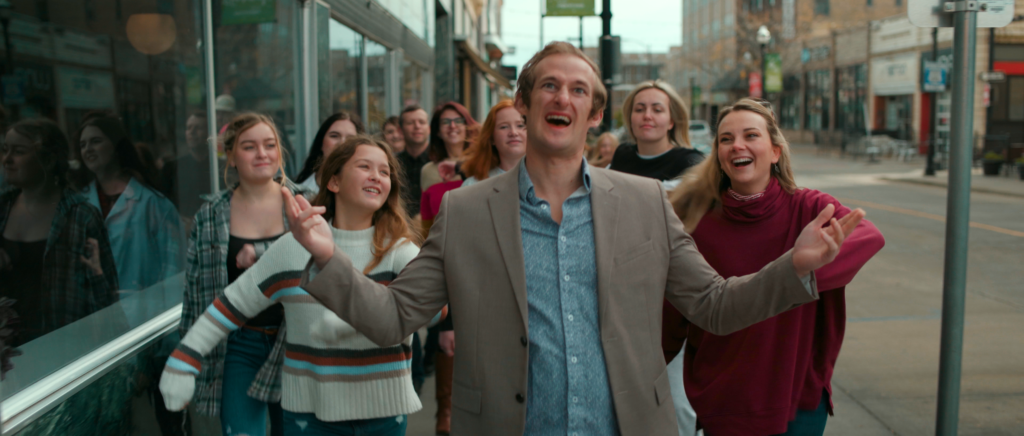
How did you deal with the musical component of filming? Did that complicate scheduling? Was any of the music recorded live?
We tried our best to write the music as we wrote the script. When I realized I wanted to do a musical, I reached out to my nephew, the lead singer of the band Fox Royale- I have a fair amount of musical skill, but I knew he was great at writing catchy lyrics and memorable hooks.
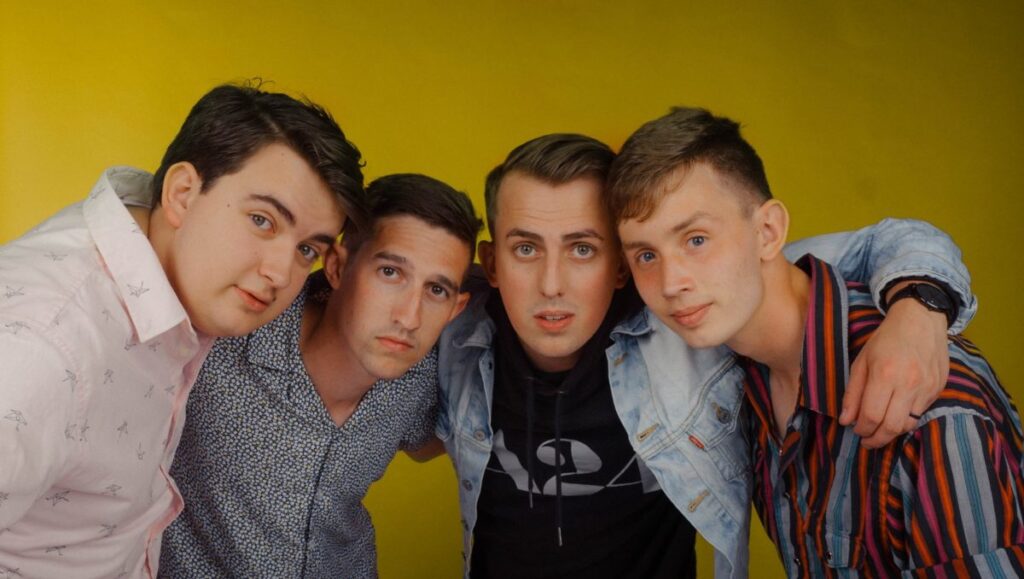
Eldritch was initially envisioned as a series, so I separated it into distinct chapters- each of which was supposed to have at least one song. I wanted the songs to actually have a purpose, leading from one part of the story to the next, so I would reach out to Nathan, describe point A and point B and what needed to be conveyed to get us there. We would waffle back and forth on theme and lyrics, and once we agreed, he would come back with the melody.
We recorded most of the songs before the crowd funding campaign (re-recording for eventual cast changes later), and the actors would lip-sync while filming. All the dialog in the songs was captured live during filming, which added its own share of complication during the editing process.
As a contributing screenwriter, what is the most important aspect of building a character?
I tried to create each of my characters based on people that I knew. None of them were necessarily exact copies of those people, but they served as a good basis to start from and then build off of. Since I was trying to go somewhat over-the-top for the story, I also tried to make certain key characters a bit of a caricature of what a normal person would actually be like. Colin is an overly sarcastic amalgamation of a couple friends I’ve had over the years. Jill had my wife as a muse (there’s actually a funny story about my wife and the name Jill from our high school courting days). Rich is somewhat based on my own brother, although he never stole girls from me and I’ve never killed him. I suppose Geoff is based on myself (I was tempted to play Geoff, but I’m so glad I decided to stay behind the camera and cast Graham Weldin, who played the role so well).
I suppose I would say that the most important aspect is to try to have a complete vision for your character, even if not all of it makes it into the script. For me, basing it on people I knew helped me to have an idea of their whole story.
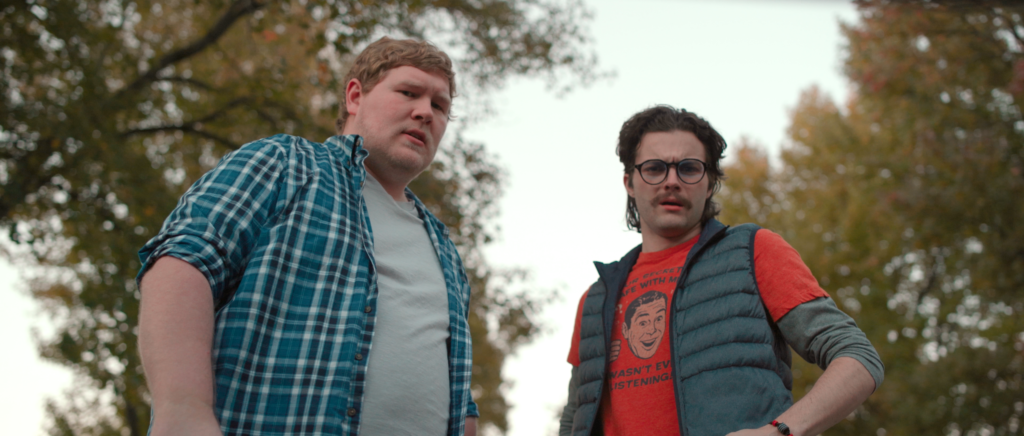
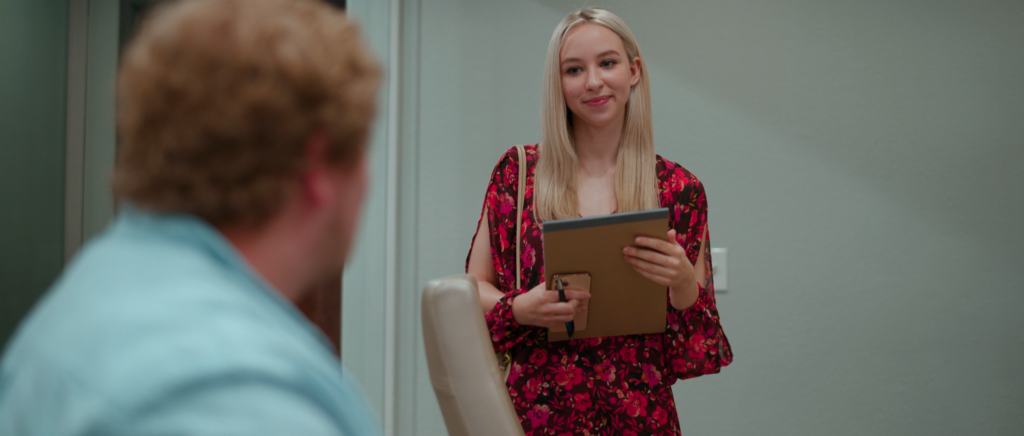
What was the most important thing for this movie to achieve from a narrative and character standpoint?
I wanted to make sure that from a story perspective, everything made logical sense and the characters needed to be relatable, albeit exaggerated. I often worked with my wife to puzzle out dialog pieces that sounded natural, particularly from a female perspective. As I wrote, I was also very mindful of the pg13 rating that I wanted to achieve. I love horror, and I loved sharing horror films with my kids (most likely at too-young of an age). As a result I wanted to write something that was accessible for most ages (even though Sloan, who played Younger Jill, stated that it was “too scary”).
What makes a film interesting for you? What are three qualities that you look for in a movie?
Story is definitely number one in this category. I’ve watched a lot of weird films with great stories that had me captured the whole time. I also really enjoy a film that is beautifully shot- I never realized how hard that was to accomplish until I worked with David (he would labor over exact light placement). I suppose a third quality would be quirk? I often find myself drawn to films that have an element of not-quite-right-ness to them.
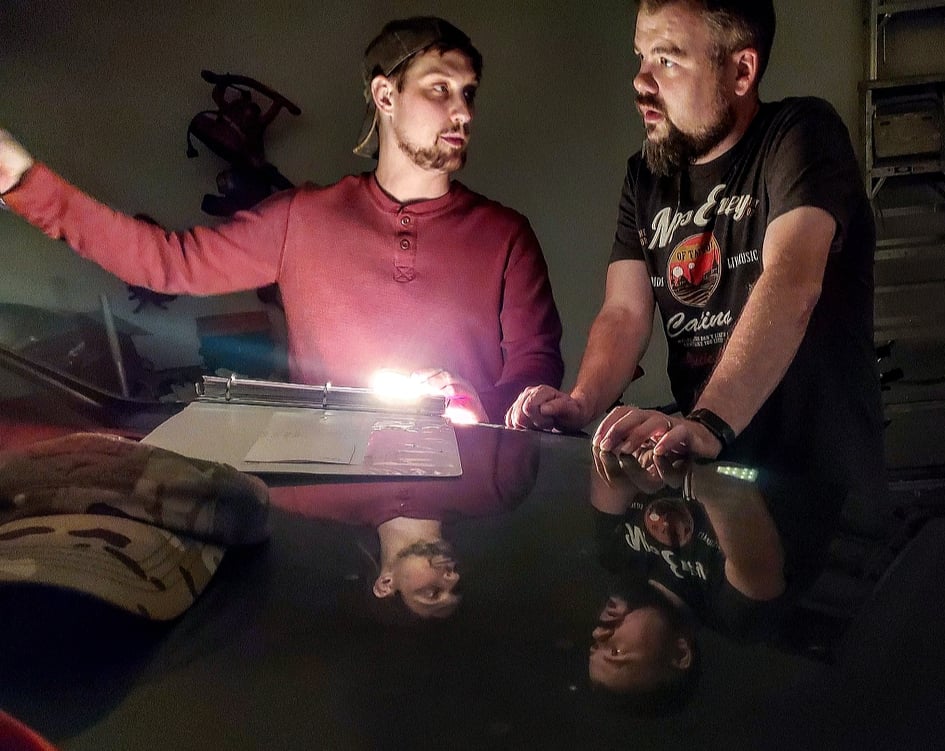
What are you most proud of? Describe your biggest accomplishment to date.
Is it cheesy to say my family? I’ve been married for 24 years, I have 5 children, a son-in-law, and one grandchild. We’re not a perfect family by any stretch, but we deeply care for one another and that feels pretty doggone special.
What are your ambitions for your directing career?
Immediate ambitions or long-term? I am working towards bigger, more professional films. I love writing, I love directing, and I would love to do it at a professional capacity.
Big term dream? I’d love to do a Harry Dresden series for HBO. Biggest dream? I’d love to work with the Muppets.
What are you currently working on?
I’m currently working on VFX for a slasher film written and directed by my producer Brittney Greer entitled “Happy Halloween”, as well as co-writing a dramedy with another local filmmaker. I have several other projects that are in the outline stage, and I’m narrowing down which one to flesh out first.
What advice would you give to someone who is aspiring to enter the film industry, especially as a director?
Be ready for a lot of work. We’ve had several films that have started in our region and then eventually fizzled out before they hit the finish line. It’s easy to be taken in by the idea that making films is fun (because it is!), but there is also a lot of hard work and dedication that goes into seeing the project through to the end. Fights will happen. Scheduling will fall through. Shots will not look exactly how you envisioned them. You have to be quick to adapt and above all else KEEP GOING.
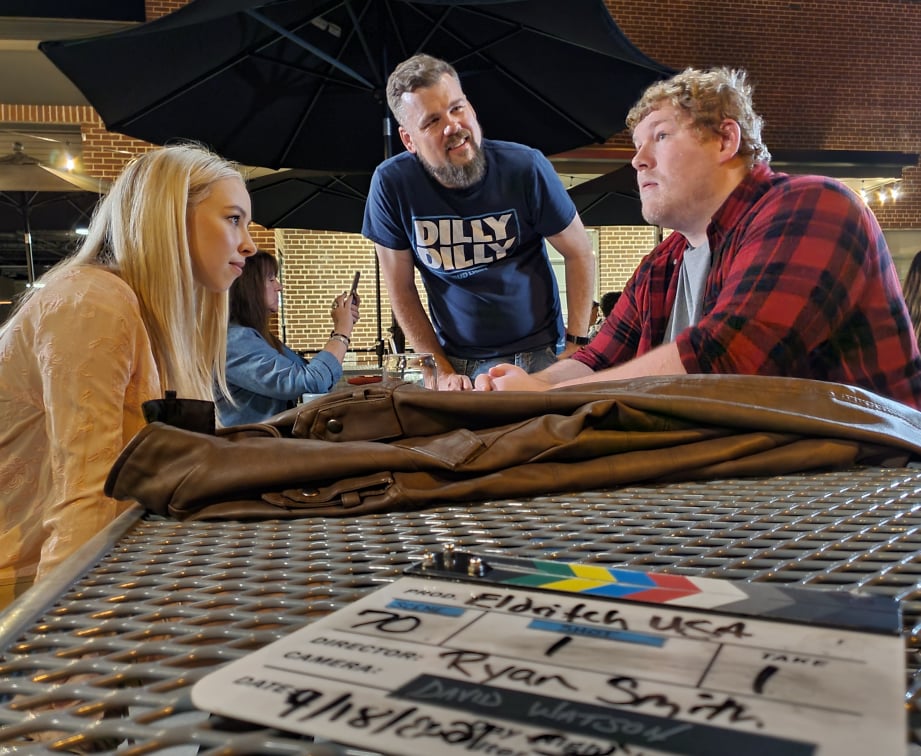
Where can everyone keep up with you to learn more? (social media links, related websites, etc)
Eldritch, USA has its own website at www.eldritchusa.com, and we have a social media presence on Facebook, Instagram, and Twitter (we’re working on tiktok). The fastest way to get to all the relevant Eldritch, USA links is through https://linktr.ee/eldritchusa. For Passive Aggressive Films, we currently have a Facebook presence- It doesn’t have much of a following yet due to our focus on Eldritch, so feel free to like the page and we’ll build up from there! https://www.facebook.com/PassiveAggressiveFilms
Thanks so much for joining us for this conversation. We appreciate your participation and wish you the very best – and we’re excited to see how many of those nominations turn into wins on May 20th at the live event! We hope to see you and the team there. Best of luck with everything.